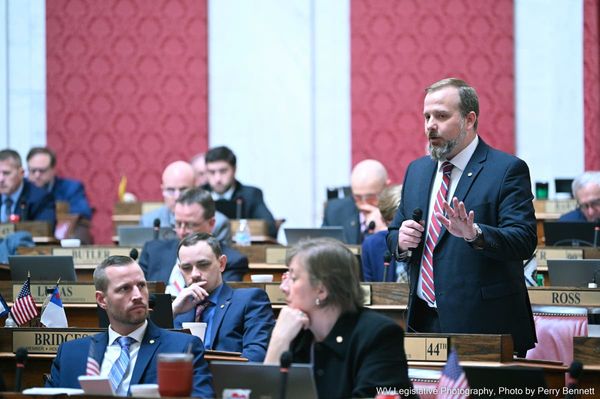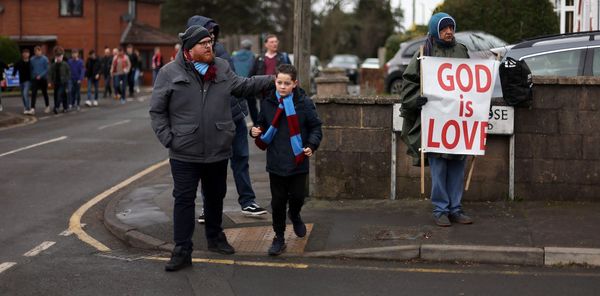
The Sydney Anglican church has accused the Australian Law Reform Commission of a “double standard” for seeking to give LGBTQ+ students role models while limiting the ability of religious schools to hire by faith.
The church’s submission to a review of exemptions for religious schools from discrimination law is part of a broader conservative backlash that has prompted the prime minister, Anthony Albanese, to recommit the government to allowing schools to select staff based on faith.
But discrimination experts have warned the commission’s discussion paper goes too far in the other direction by protecting schools’ “ethos” and exempting their religious teachings from the Sex Discrimination Act.
The act bans discrimination on sexual orientation, gender identity, marital or relationship status or pregnancy but provides religious schools an exemption.
At the 2022 election Labor under Anthony Albanese promised to “protect teachers from discrimination at work, while maintaining the right of religious schools to preference people of their faith in the selection of staff”.
The Australian Law Reform Commission (ALRC) has proposed removing religious schools’ exemption from the Sex Discrimination Act and replacing it with a narrower right to give “more favourable treatment on the ground of religion” for hiring employees where it is “proportionate in all the circumstances”.
The Sydney Anglican submission, by the Rev Dr Michael Stead, rejected the ALRC call for schools to be able to preference on religion only if it is a “genuine occupational requirement” of a teaching role.
That would prevent schools preferencing teachers because of their faith in as many as 95% of roles, with limited ability “to choose [a] Christian maths teacher over [a] non-Christian maths teacher”, it said.
The submission warned that schools “could not require, as a condition of appointment, any staff member or prospective staff member to sign a statement of belief by which they had to affirm that homosexuality is a sin because this would be discriminatory against an LGBTQ+ applicant”.
It said Anglican schools “generally do not require” teachers to sign statements of belief and did not dismiss employees for being LGBTQ+, although there might be a “code of conduct” requiring them to support the Christian ethos of the school.
“We don’t expel or mistreat students for holding values in conflict with the Christian faith.”
The ALRC consultation paper noted that some stakeholders argue that “without revealing personal details, LGBTQ+ staff can play an important role in supporting LGBTQ+ students and ameliorating some of the mental health risks they disproportionately face”.
The Sydney Anglican submission noted that, despite this, the ALRC had “inconsistently rejected the argument … that faith-based schools need teachers of the same religion as role models”.
“Its rejection is based on the spurious ground for the purposes of this inquiry that ‘preferencing staff on the grounds of religion disadvantages those who are not of the same religion’.
“This has the appearance of an unwarranted double standard which preferences one worldview over another.”
The Australian discrimination law experts group, coordinated by academics Robin Banks, Liam Elphick and Alice Taylor, welcomed the ALRC’s proposal, which they said “differs significantly” from the Morrison government’s religious discrimination bill.
But the experts rejected the proposal to consider an institution’s “ethos” in a new section of the Fair Work Act giving schools limited firing powers if a teacher “actively undermines” it.
The term “ethos” has no current meaning in Australian law and “its potential breadth could privilege religious educational institutions above all other employers”, they said.
The experts also warned that the ALRC proposal to “amend the Sex Discrimination Act to clarify that the content of the curriculum is not subject to the act” is “too wide in scope and likely to lead to unintended negative consequences”.
“If this inquiry is to remove discrimination against staff and students on the basis of attributes protected in the [act], then it cannot allow such discrimination in the content taught by those staff and learned by those students.”
In February an alliance of religious leaders – including the Sydney Anglican and Catholic churches, Greek Orthodox church, National Imams Council and Executive Council of Australia Jewry – wrote a letter to the attorney general arguing the “severe limits” proposed by the ALRC went beyond its terms of reference.
Catholic schools have also raised concerns about the ALRC’s proposal.
In response, Albanese told the Labor caucus that “we made our position clear a long time ago that faith-based schools can employ people of their own faith”.










